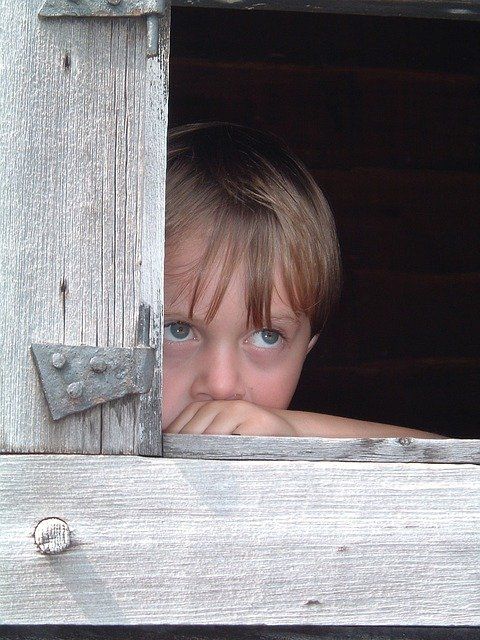Parenting has never been easy – far from it – but I want to make readers aware of various reasons why, in my view as a teacher and a parent, it is getting more difficult.
SmartphonesWhen I began teaching in 2007, the first iPhone had only just been released. It was very noticeable how quickly my school changed over a very short space of time. It’s one thing for sixth-formers to have smartphones. It’s another thing, a few years later, for Year 7s (11-year-olds) to have a smartphone and to have had it for a few years.
It’s now not uncommon for children to get their first mobile phone as a Christmas present when they are seven or eight. I’m not convinced that 18-year-olds can consistently handle the temptations smartphones bring, let alone eight-year-olds.
It’s tragic when boys call girls names that are sexually provocative or charged with innuendo without even realising what they mean. It’s tragic when girls wear clothes without even realising how immodest they are.

And much of this is down to the impact of children using smartphones at a very young age and various disgusting behaviours becoming normalised. Children naturally tend to mimic such behaviours before they’re even old enough to understand them.
Even children who don’t have a smartphone might well find themselves sitting on a bus next to someone who does. Even in lessons, pupils can be very good at managing to get their phones out and showing content to others sat next to them without their teachers even realising.
Sadly, a simple Google search of many famous people instantly returns pictures of them that are deeply unhelpful to look at. The adverts on seemingly innocuous websites can border on being pornographic. It’s much easier to stumble across them than it was a few years ago.
Role modelsCuties, a Netflix film produced in 2020, features 11-year-old girls wearing very immodest clothes and repeatedly dancing and cavorting in ways that would be common in pornographic films.
Interestingly, some have taken issue with those who criticise the film, saying that it has been deliberately made to expose the sexualisation of children in popular culture. The tragic irony is that it does this through airing extended footage of sexualised children.

Christian parents are increasingly having to encourage their children (often their daughters), to avoid wearing what their peers and school role models wear, having to explain why despite the relative youth and innocence of their children.
Children’s role models are often not just setting a terrible example with respect to dress. I recently overheard two 12-year-olds playing a game. One had written the name of a celebrity on a Post-it note and placed it on her friend’s forehead. The friend then had to ask questions that could be answered with either yes or no before guessing the name of the celebrity.
After a few questions, she asked, ‘Has she had plastic surgery?’ ‘Yes, lots,’ was the answer. It is becoming increasingly common for children to have conversations about celebrities that are deeply unhelpful. It’s not just celebrity lifestyles that are sinking lower and lower, it’s also the age of the children talking about them.
BehaviourWe know that we are all born sinners, hence poor behaviour among children isn’t new. Yet there is a consensus among the teachers I talk to that behaviour is getting worse. The whole concept of authority is increasingly being despised and children are being brought up to think that authority is something that gets in their way and needs to be constantly fought so that they get their own way instead.
My wife and I teach our children that they should obey first and then ask. It’s a struggle to make this the norm and I wouldn’t want to pretend that it always happens in our household but it’s nevertheless an important principle: do what you’re told because someone with God-given authority has told you to and then, if you think you’ve a better idea, ask politely if you can do it differently once you’ve complied with the instruction first.

Yet this is totally undermined by a culture that accepts and expects answering back. We all know that we are more influenced by those around us than we often realise, and as behaviour gets worse, so does that influence.
Emotional manipulationIt is increasingly common for schools to give rewards for basic levels of behaviour that should just be the norm. My daughter came home with a sticker recently because she helped tidy up while other children didn’t want to!
Why tidy up? Not because it’s right or courteous, but because if you do, you get a sticker! There may be lip service paid to it being right or courteous but when push comes to shove, children are manipulated into doing what they should do in order to get rewards that they’re manipulated into wanting.
At home, we have sought to distinguish flattery from encouragement. Yet schools are absolutely full of flattery and children are constantly being given cheap praise with hardly a thought given as to whether the wonderful things being said about them are true or not. The agenda is largely that of making it easier to get them to do what adults want them to do, either immediately or at some point in the future.
It’s not just in schools: I’m convinced that children are becoming hooked on affirmation, however cheap, and learning to be exceptionally good at manipulating situations and people because it’s how they’re used to being treated themselves.
As this becomes more and more prevalent, it becomes harder and harder for parents to train their children to say what they mean, mean what they say and do what is right because it is right.
Offering supportWhether we homeschool or send children to state schools, Christian parents need the support of other Christians.
Could you volunteer your time once a week to teach a child of a Christian family you know the piano? It might help them to keep one parent at home and not require both to go out to work.
Can you fix your car with a teenager from a Christian home you know in order to help them learn useful skills?
Could you lend a Christian family a DVD that would provide some fresh wholesome fun and save the parents having to fork out for it?
Could you buy or make some clothes for a child you know that they’ll want to wear but will also promote modesty?
Can you make a child aware of a positive role model or be that role model yourself?
Can teaching in our churches underline why modesty is so important? Or why Christ has authority over us, and also those to whom Christ has delegated authority? Can we teach that it’s liberating to be counter-cultural?
How do parents respond?The issues raised in this article have hardly been pleasant, but it is important that we Christian parents realise when we need help in the face of the changes happening around us.
We need to keep abreast of current trends in the education system and popular culture: to be forewarned is to be forearmed. We need to share concerns with other parents about harmful influences upon our children.
We need to remind ourselves of the importance of spending wholesome time with our children, talking and listening to them so that when we have the difficult conversations about the matters raised above, our children realise the concerns are coming from a loving parent with genuine care for them.
May God help us to know the times we live in and support Christian parents in their daunting task. May we see our children navigating these difficult waters, growing up to be the pillars of tomorrow’s church.
Andrew Farquhar is an elder at Edington Evangelical Chapel, Bridgwater, Somerset.














